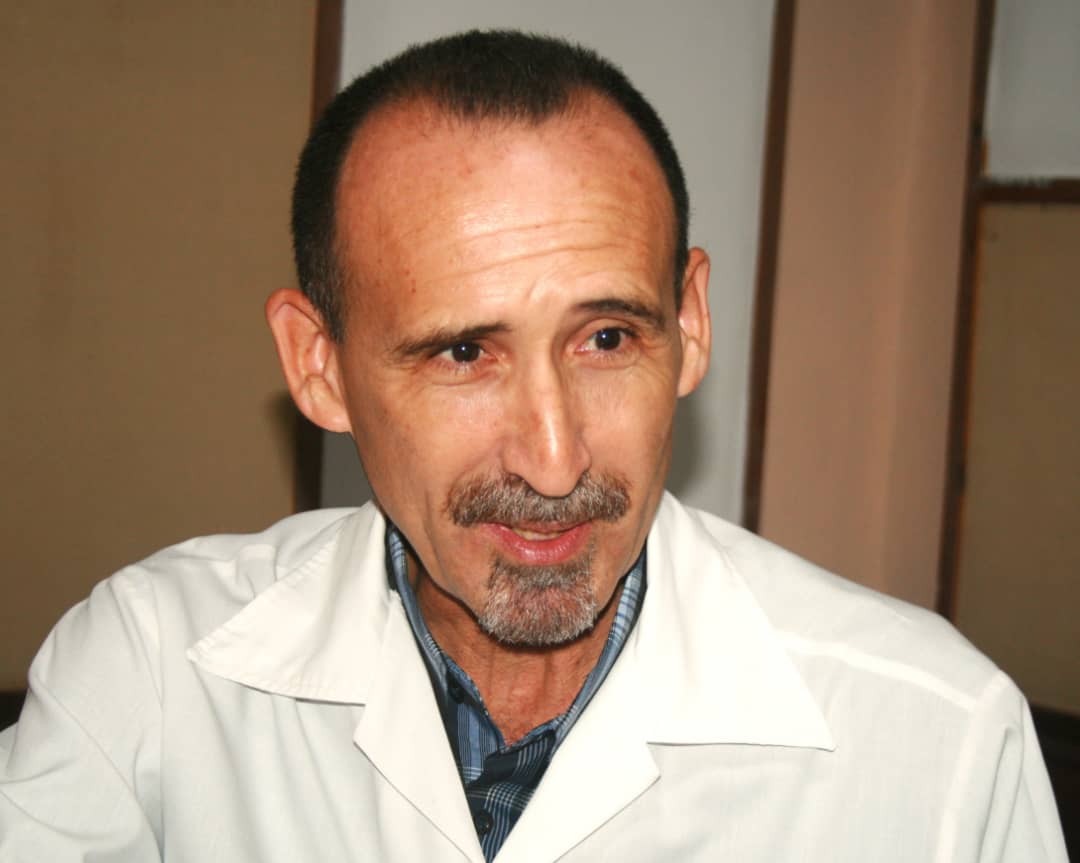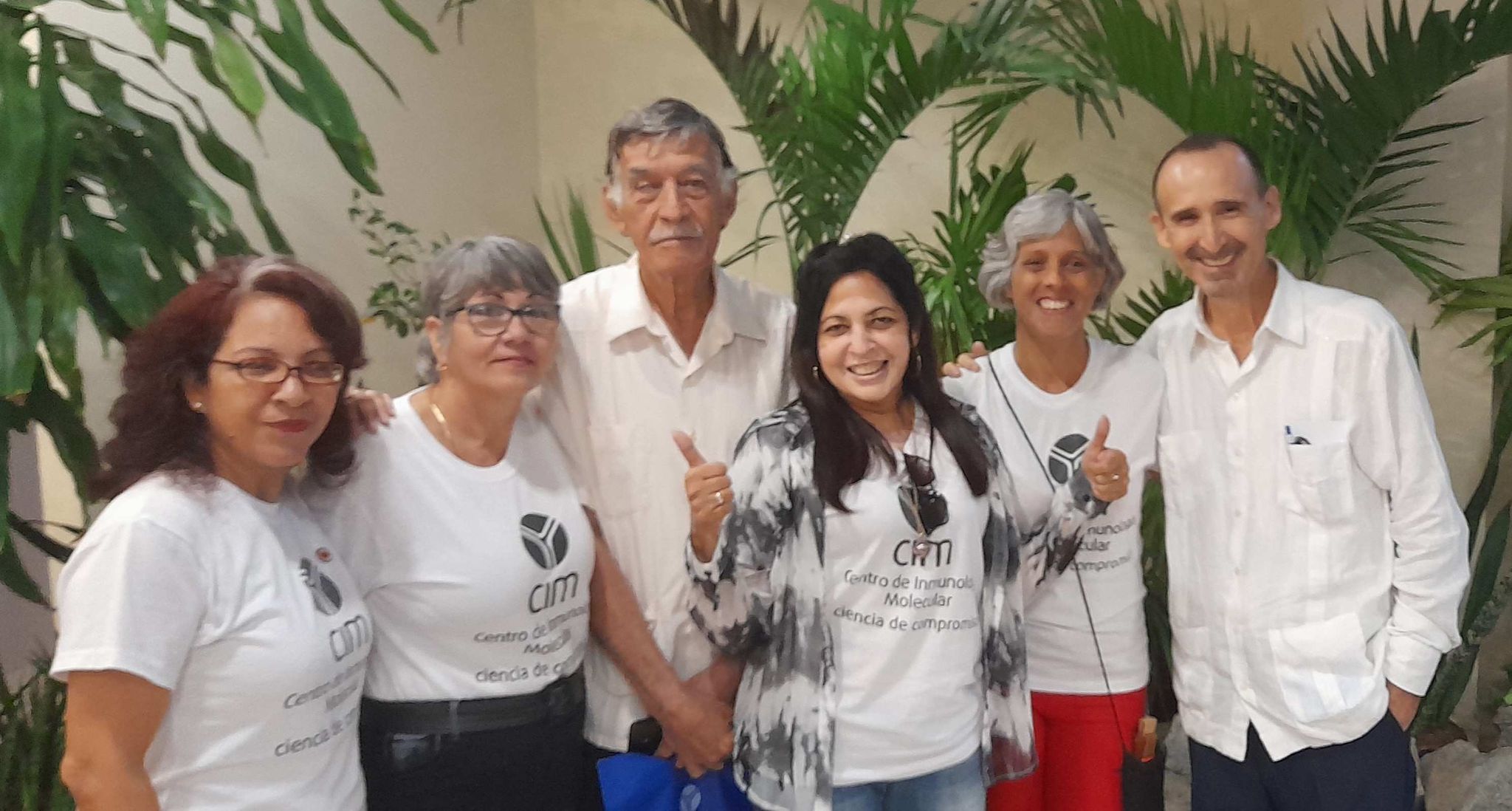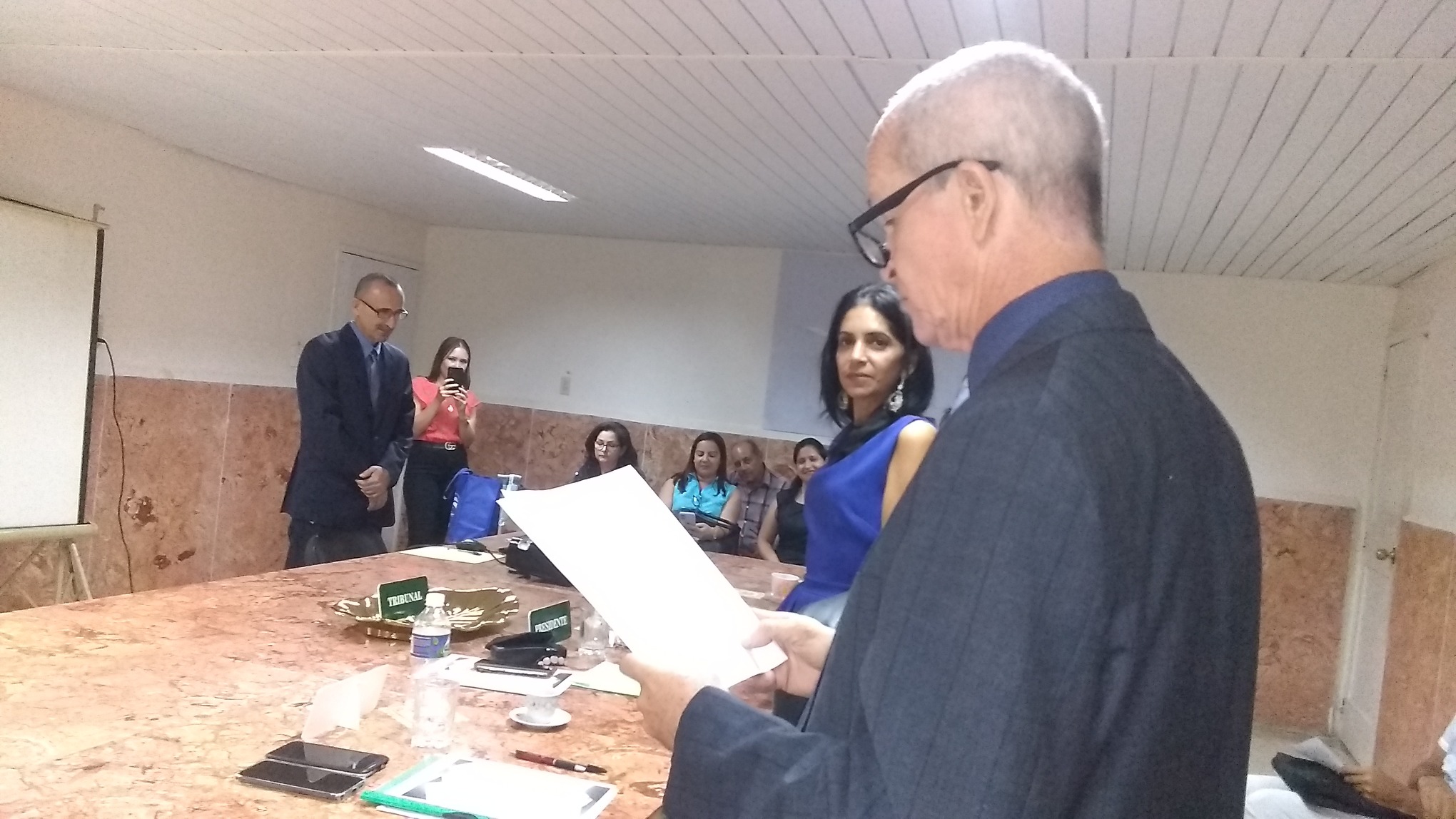
Some time has passed since the young Orlando Rafael Serrano Barrera fell in love with the world of science. From his native Antilla, in the province of Holguín, to the untamed Santiago de Cuba, the young reader carried a somewhat innocent curiosity and a desire to learn. At the Floro Pérez Vocational School, he found answers and a path.
"I owe an important contribution to my professional training to that institution," he says as he recalls his days as a biology student and his longing to study radiobiology because he was also passionate about physics and was looking for the confluence of both fields.
Although he definitively graduated from high school in his native Holguín, it was in the Hero City where he later became a doctor and where his vocation for service, which is essential for a professional in the medical sciences, took root.
He studied during the years of the Special Period, a time of "a great desire to study, solidarity and spirit of sacrifice", in which not only his intellect but also his character was tempered by the hand of the founding professors of medicine in that territory, men and women who were "as excellent as they were demanding". And for that generation, there was no crisis to put the brakes on the dreams harbored by so many families and young people with the drive to excel.
He began specializing in Immunology when it seemed that the experience of Antillean socialism would hit rock bottom, but the collective resistance was as stubborn as that of the young doctor. Everything else has been as fruitful as it has been brief for those who feel the joy of studying and contributing; for those who know that "the greatness of human beings lies precisely in wanting to improve what they are." From that period, he retains the conviction that "the urgent and immediate cannot prevent us from looking ahead."
 Dr. Orlando together with other professionals of Immunology in Cuba. |
"Those were the years of creation and consolidation of most of the centers of the biotechnology industry in the country, and it was precisely this network of institutions that saved us during the pandemic. I experienced that genesis during my university years with the establishment of the Laboratory of Antibodies and Experimental Biomodels (Labex) in Santiago, inaugurated in July 1993 by Fidel. It was unforgettable to participate, as a student, in an idea encouraged by him and brought to fruition by very valuable colleagues with whom I shared it, along with other professionals in Immunology in Cuba."
"Later, in Havana, while I was studying for my specialty, I also had the opportunity to see how many projects were being gestated. The work of those years shows that, no matter how adverse the circumstances, one must insist that the strategy prevails."
He is heir to that vision, which is why he affirms that, against all difficulties, "we must continue to believe that there is a future" and that it is possible "for Cuba, from Cuba."
It has been "immeasurably fortunate", he says, to have been a teacher for two decades. "Pedagogy is another opportunity, teaching forces you to study and to improve yourself in every way. You have to acquire the tools of the trade, of psychology and, on the other hand, it offers you the possibility of contributing to the training of others, of sharing what you have learned, as this is the only way for knowledge to become concrete."
This "blessing-possibility-urgency" guided him in his doctoral studies in Educational Sciences and also in his work on digital platforms, through a website and a blog in which he deals with topics related to Genomic Medicine. "The objective of this academic exercise was to provide a concept to include in the training of medical students the contents derived from the Human Genome Project and Personalized or Precision Medicine, whose model is reconcilable with that of Family or Community Medicine, implemented in Cuba.
 Obtaining a Doctor of Science degree was another moment of great professional and personal growth. |
"We cannot wait for the availability of omics technologies (which make it possible to simultaneously measure thousands of small molecules that govern the functioning of our organism) to start preparing health system workers in their principles, applications, and benefits in clinical practice, medical teaching, and research. On the other hand, I confess that in this process I enjoyed getting closer to the world of Didactics, with excellent exponents in Las Tunas from whom I learned a great deal, and from whom, above all, I enjoyed learning", says the man who carries the Master's doctrines in his heart and gives us his vision of the most universal of the sons of this Island."
"There is no way to be Cuban and not feel the omnipresence of Martí. As a personality, he is incomprehensible and a human model of dedication to his homeland. Martí tells me how I should be when caring for a patient; he is a point of reference and a source to nourish, improve, and ennoble us. We must read him, seek him out, go to meet him", he reflects in a thread of ideas that lead us to his publications on social networks."
Yes, because this enthusiast of history and especially of the evolution of Immunology in our nation lucidly defends the value of information and communication technologies: "I believe that we have in our hands a means for us to leap, almost to infinity, as humanity. There is no limit to what we can achieve with the appropriate, relevant, beneficial, and positive use of these technologies.
"It is a tool that can and should unite us in the common goal of being humanity, sharing knowledge, and cultivating the spirit. That is why I always uphold the hashtag: #Let'sMakeFacebookABetterPlace, where we find enjoyment, growth, peace, joy, and recreation. We should give more in that sense and think that about whether what we post contributes to other people in terms of improvement, otherwise, I advise opting for digital silence.
He reads, researches, writes, and publishes; "what I would like is to have a lot of time," he affirms when he shares his efforts to write about the 220th anniversary of the birth of Immunology in Las Tunas and the country, as well as making public the trajectory of Sergio Arce Bustabad, initiator of transplant Immunology on Cuban soil, "a man of many firsts," as he points out.
In those sleepless nights of creative insomnia, in the days of intense maelstrom, and in the dawns of restarting the ride, his family, who, in the first instance, understand, support, stimulate, and celebrate, accompanies him. Some time ago, we would say more brief than long for those who are always impelled to do, he chose medicine as the supreme pride of the soul.
"We doctors have chosen to serve, on a path that involves continuous self-improvement and dedication at every moment. It becomes an attitude, a way of being and of living because one is always thinking about how to help others, and how to make their lives better. It's not all about treatment; sometimes a good word or advice or just listening can bring relief."
"My evolution has been towards this vocation of being useful to others and this path generates a secondary gain because it keeps your human sensitivity awake all the time. As doctors, we have to deal with the pain of others and even with the impossibility of saving them."
No one should think that we are immune to the suffering or difficulties of others; at the end of the day we are accompanied by the thought that along with the hardness of the day, there is the sense of how tomorrow I can do better and thus help another person or a family.
"Medicine is a profession and a science of much love and kindness, above all things."